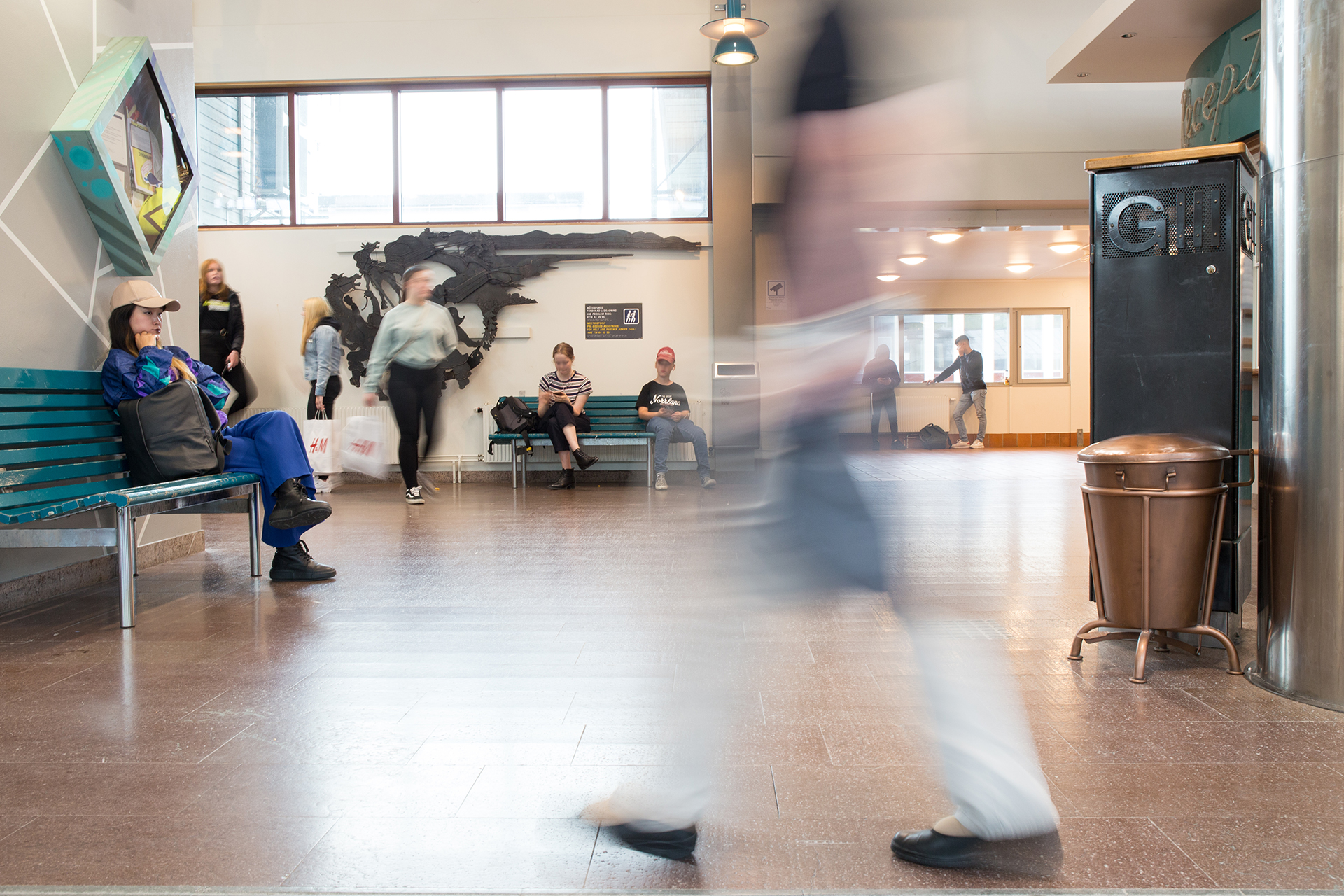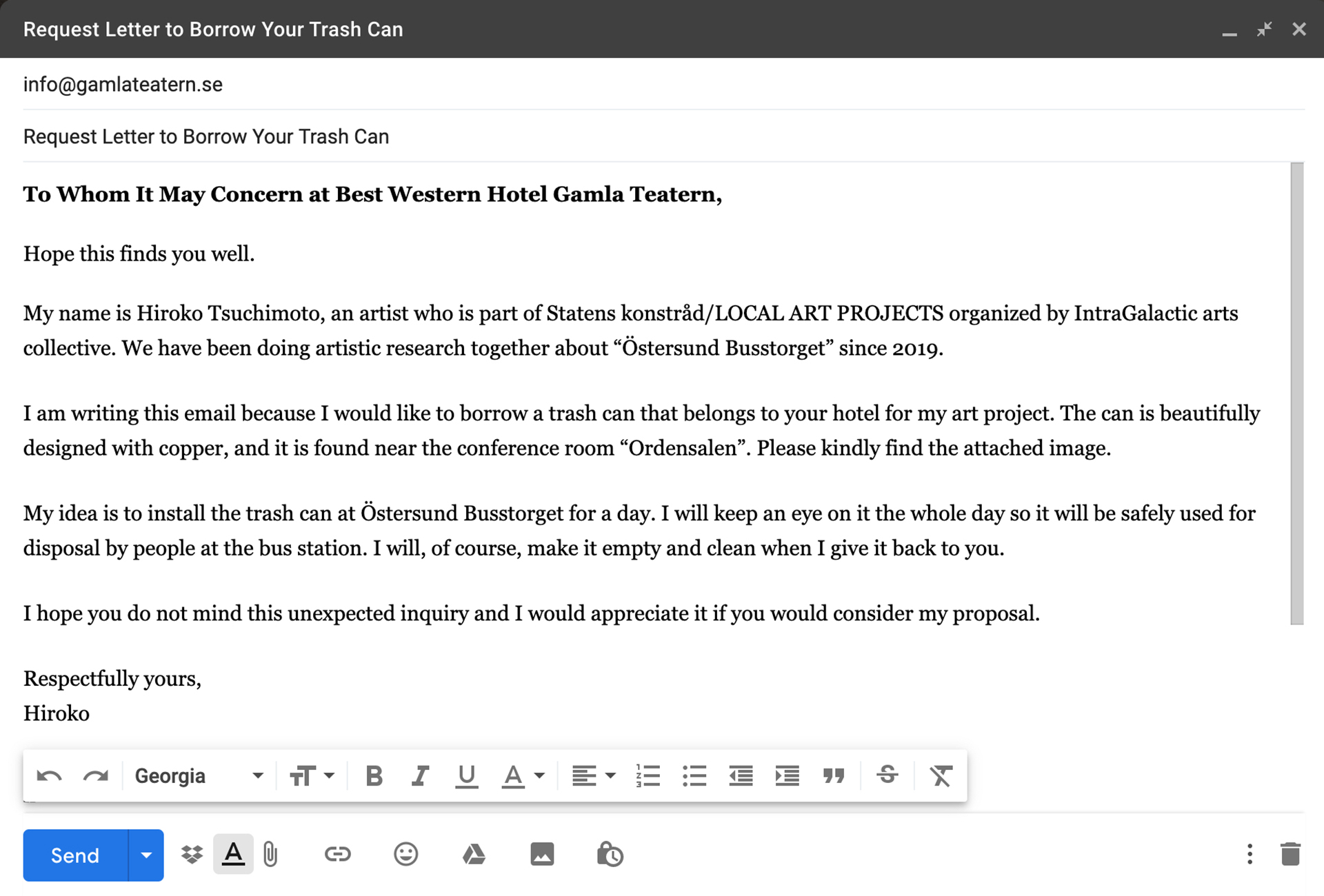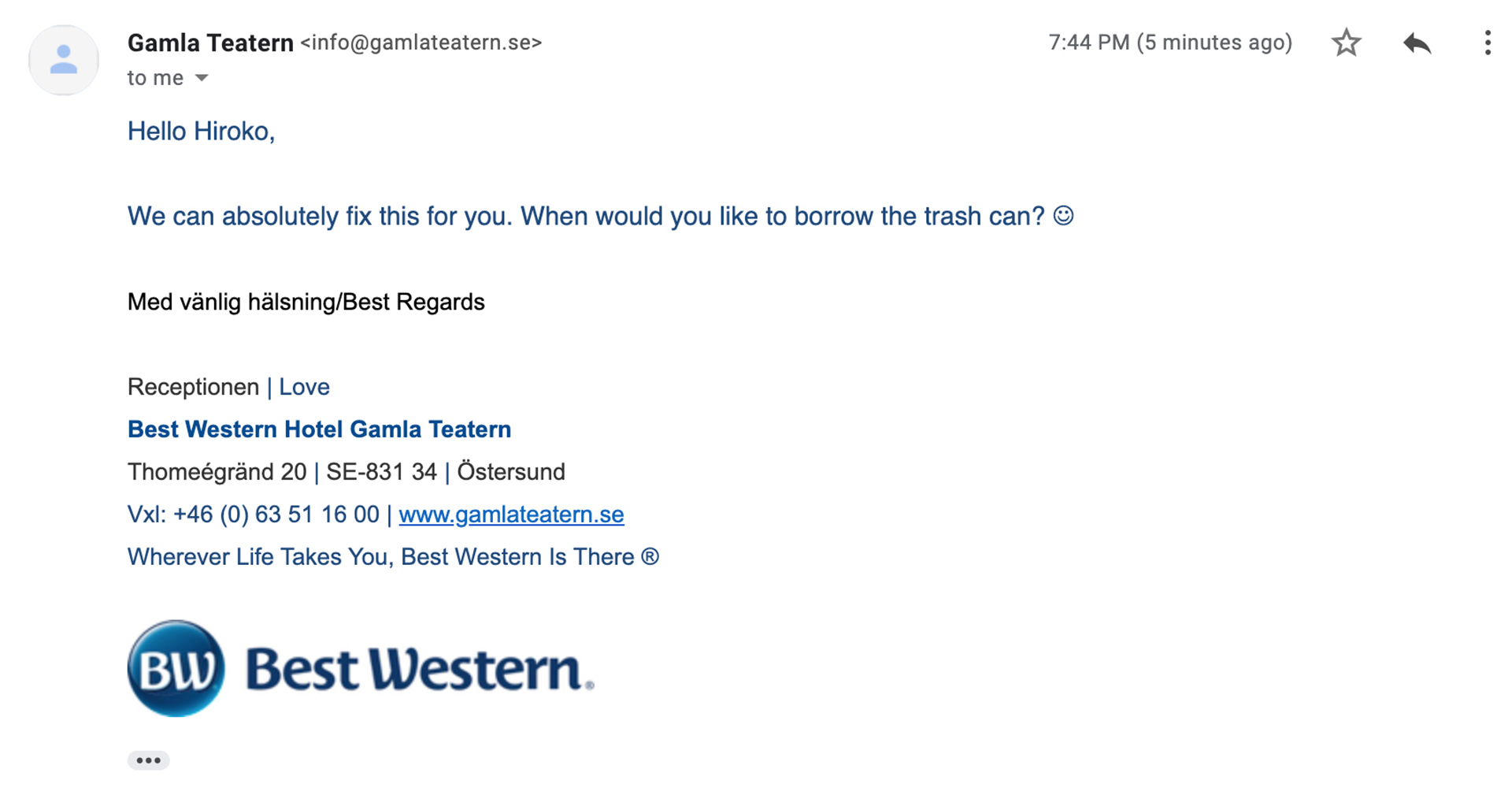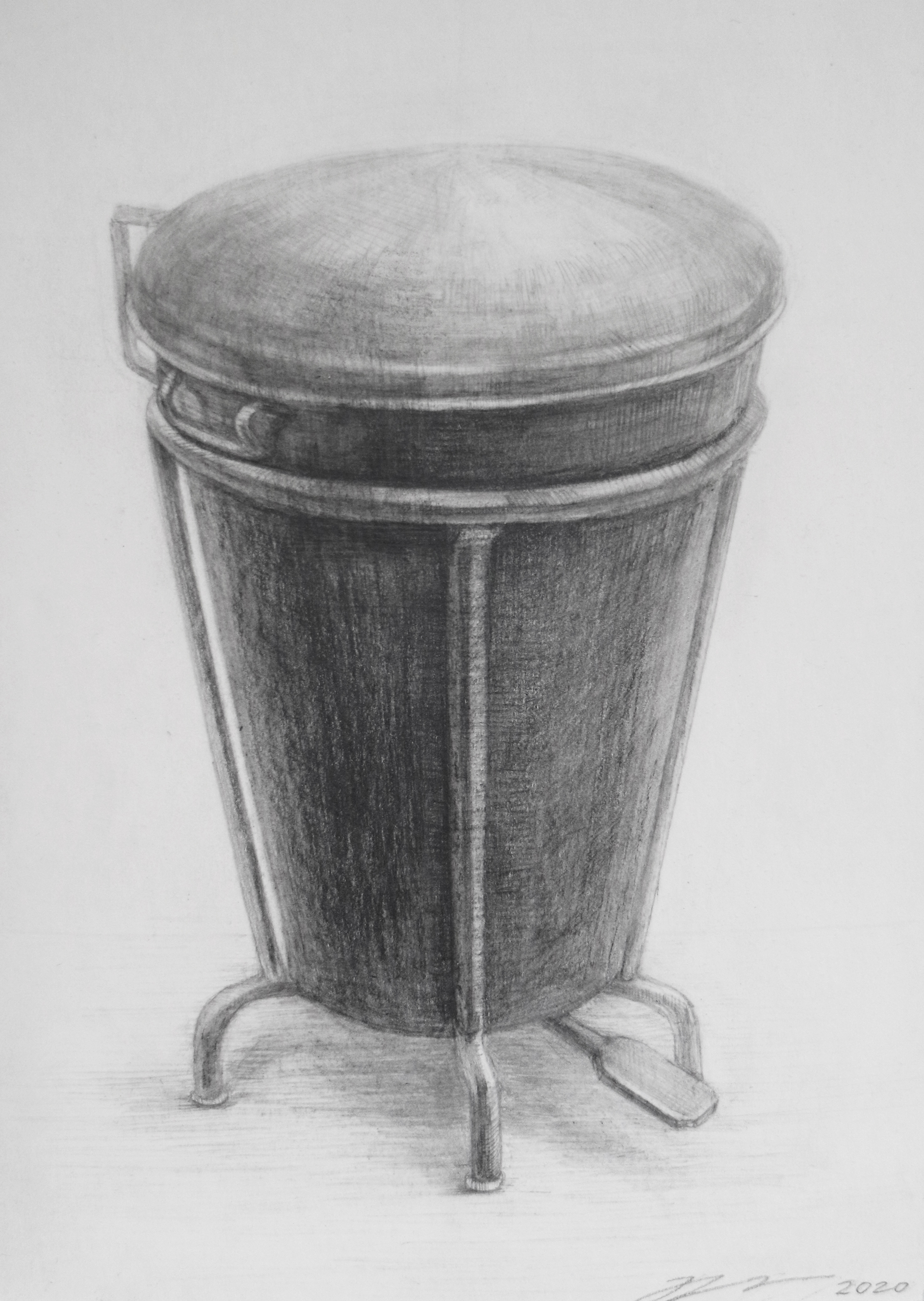
This project aims to create a connection between the past, present, and future, as well as two important local places: The Old Theater in Östersund (currently Best Western Hotel Gamla Teatern) and Östersund bus station. The Old Theater was previously employed as a house of order that was associated with the sobriety movement during the 19th century. The current bus station will be torn down and relocated to a new place as a part of the development of the city center. The artist is going to send a message to Best Western Hotel Gamla Teatern to request to borrow their trash can and install it at the bus station. If she can borrow it, she will take full responsibility to guard the trash can the whole day.
Gamla Teatern was built as a house of order in 1882 with high passion and ambitions from local residents. They gathered for the construction after work. The finance was managed by collecting money from donated items, school bazaar, and auctions. A group of women also donated their handmade items through a sewing organization. People got attracted to participate in sobriety organizations because of their curiosity for new ideas and secret rituals, opportunities for social gatherings, and cultural activities. They constantly exchanged ideas for better uses of this space for benefiting local communities. Their strong motivations and devotions are prominent in their sobriety banners which were beautifully hand-sewn and/or painted on exquisite fabrics. They often used Viking motives which were commonly considered as a national romantic symbol at that time. Gamla Teatern has been located across from Gustav III torg (previously Nytorget) and turned into a hotel in 1992.
‘Lokala konstprojekt’ is a part of the Public Art Agency Sweden’s ‘Knowledge hub public art’ which is a government assignment to inspire and strengthen the development of public art in all of Sweden. Within this framework, IntraGalactic arts collective, an artist-run initiative that was aware of the commission, invited an artist research group consisting of artists Malin Ståhl, Hiroko Tsuchimoto, and Anita Wernström. During the years of 2019 and 2020, they have worked collectively with performance as a process and setting up a research process with the coach travel center and service in the county of Jämtland-Härjedalen.


